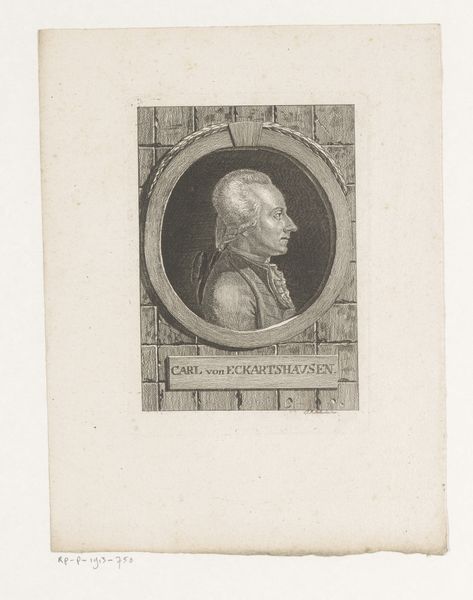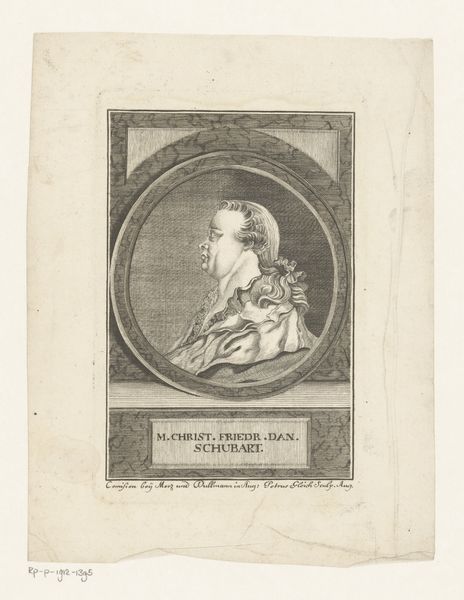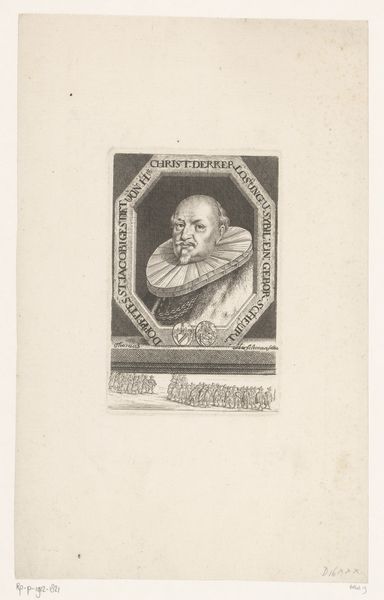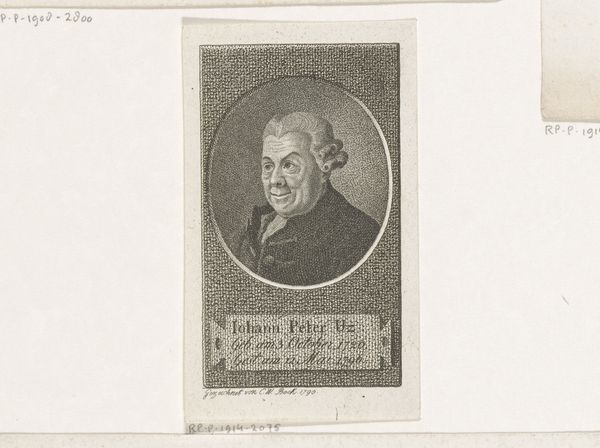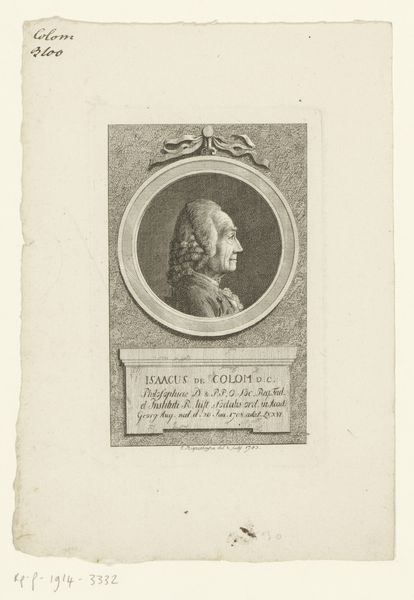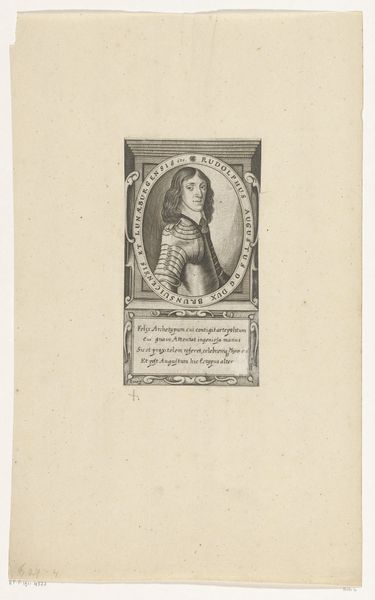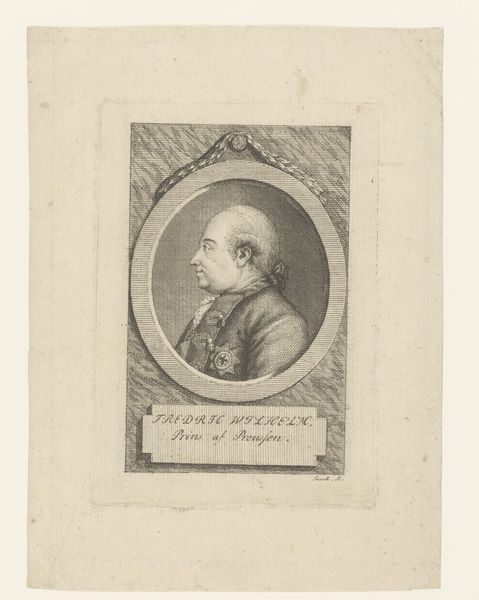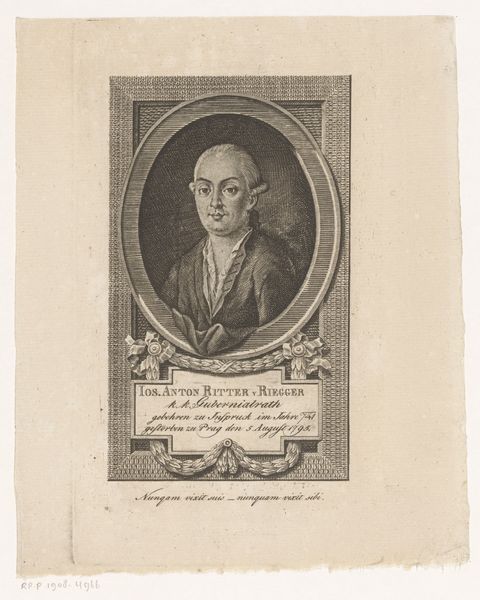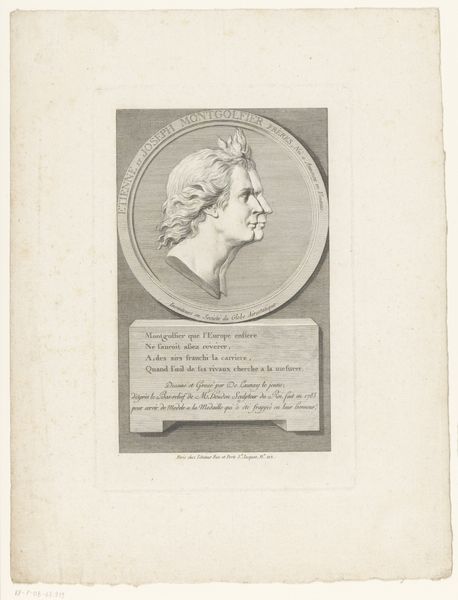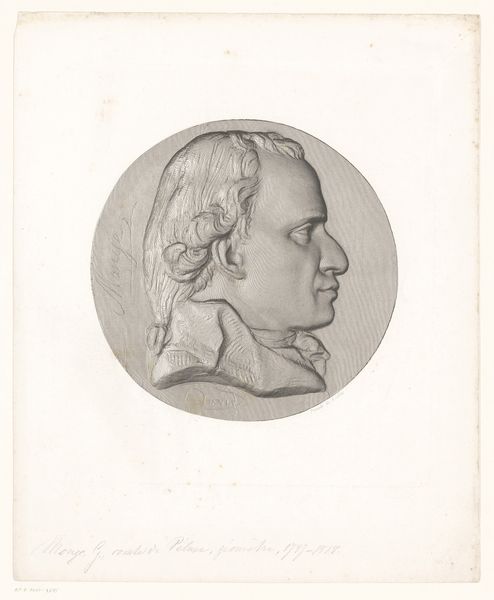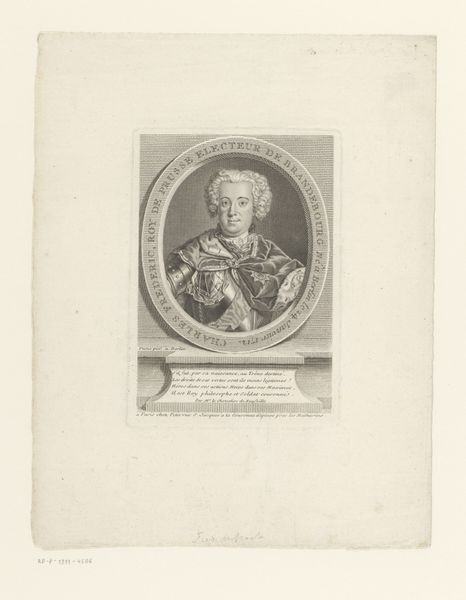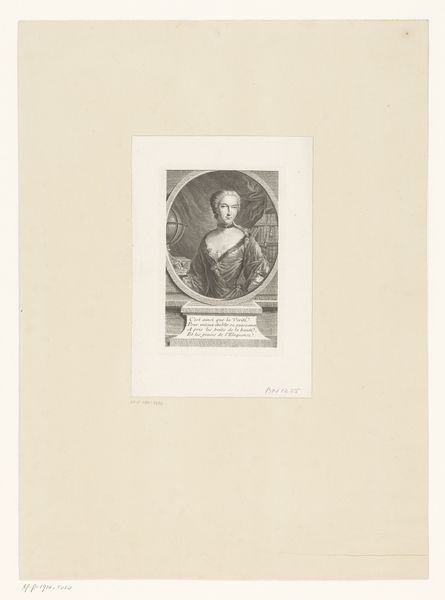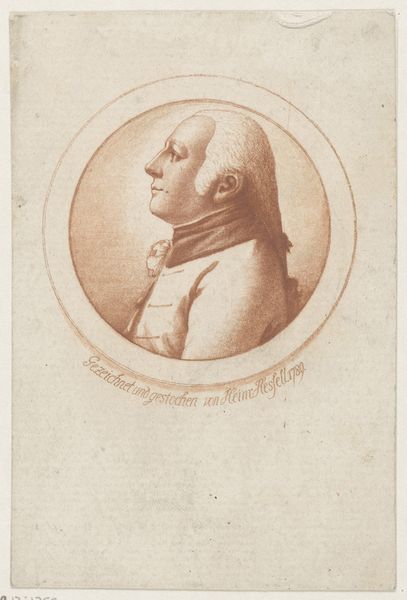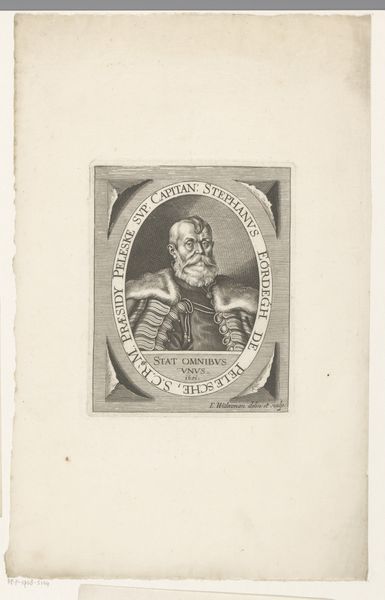
print, paper, engraving
#
portrait
#
baroque
# print
#
old engraving style
#
paper
#
line
#
engraving
Dimensions: height 174 mm, width 108 mm
Copyright: Rijks Museum: Open Domain
This portrait of Giacomo Diol was made by Claude Olivier Gallimard as an etching, a printmaking process that relies on the corrosive power of acid. The image begins with a metal plate, likely copper. The surface is coated with a waxy, acid-resistant material, and then the artist scratches through this coating with a sharp needle, exposing the metal. Immersing the plate in acid creates incised lines where the metal is bare. These grooves hold ink, which is then transferred to paper under great pressure. Etching allowed for the relatively easy production of multiple images. In the 18th century, this reproductive capability fueled the circulation of images and ideas. While a painting might be commissioned by the elite, prints could find a wider audience, democratizing art and information. The careful labor invested in each print reflects a shift towards a more market-driven art world. This challenges conventional notions of artistic uniqueness, emphasizing the social and economic contexts of artistic production.
Comments
No comments
Be the first to comment and join the conversation on the ultimate creative platform.
